Sardinian cuisine typically reflects the island’s rugged landscapes and Mediterranean influences with a stunning blend of land and sea flavours.
The food is simple and frugal but deeply flavorful. It relies on local ingredients like sheep’s milk cheese, fresh seafood, homemade pasta, and aromatic herbs and vegetables.
Appetiser
Music paper bread is a quintessential Sardinian bread known locally as pane carasau. It is made by separating baked flatbread into two sheets and baking them again until they are super crispy.
It is served with plenty of fresh, early-harvest extra virgin olive oil.
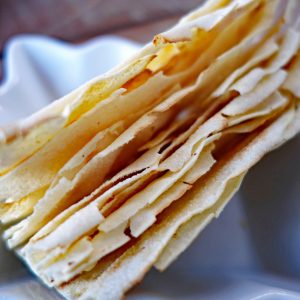
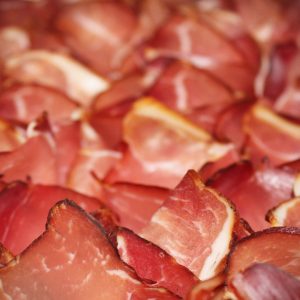
Antipasti
Cheese
Soft and creamy, fresh Sardinian ricotta is a true delicacy.
It is typically drizzled in honey to create the perfect balance of sweet and savoury, with delicate floral notes.
Toasted almonds are sometimes served alongside it to provide an interesting textural contrast.
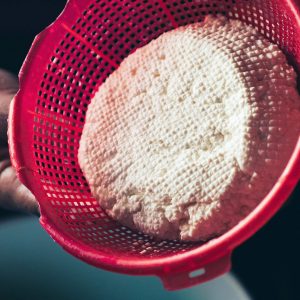
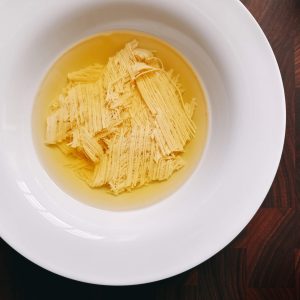
First course
Su filindeu in mutton broth with fresh Pecorino cheese.
When all the pasta has been eaten and there’s just a little broth left, there is an Emilia-Romagna tradition where a small amount of red wine is mixed into the remaining broth. The mixture is then drunk directly from the bowl, serving as a warming, hearty and almost medicinal conclusion to the dish. It’s a custom that is still popular in rural France where it is called faire chabrot.
Second course
This frugal meat and vegetable dish uses up all the slow-cooked ingredients used to make the broth.
Cooks typically add potatoes near the end of the broth-making process to make this course a perfectly balanced main. As with many things in Sardinia, the potatoes are traditionally drizzled with a little extra virgin olive oil.
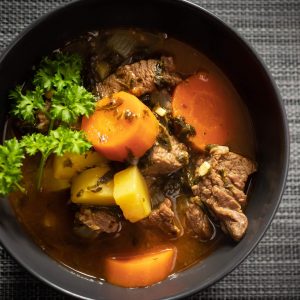
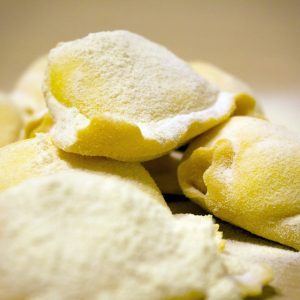
Dessert
Rounding off the meal is a sweet, deep-fried dumpling stuffed with fresh pecorino, and lemon zest, and drizzled with honey.
Oozing with warm, melted pecorino cheese, Sebadas are Sardinia’s most beloved dessert that offer a sublime contrast of sweet and savoury flavours.
Digestif
How better to end a meal than with a shot of honey grappa? This grape-based brandy is the perfect example of Sardinian’s frugality as it is made from the leftover pomace used in wine production.
You may also find local speciality Mirto being served. This comes from macerated myrtle berries that grow wildly in abundance throughout the island.

